First, how to maintain and clean stainless steel seamless pipes
Keeping stainless steel seamless pipes clean and maintained will help extend their service life and appearance. Please clean and maintain them regularly as needed.
1. Regular cleaning: You can use a mild detergent and a soft cloth or sponge to clean the surface of stainless steel seamless pipes. Avoid using abrasives or irritating detergents to avoid scratching or damaging the stainless steel surface.
2. Daily cleaning: Rinse the surface of stainless steel seamless pipes with clean water every day to remove surface dust and dirt.
3. Remove stains: If there are stains on the stainless steel seamless pipe, you can use diluted white vinegar or lemon juice to remove them. Apply white vinegar or lemon juice to the stains and wipe with a soft cloth until the stains disappear. Finally, rinse with clean water.
4. Avoid scratches: The surface of stainless steel seamless pipes is prone to scratches, so avoid using irritating items such as steel wool or hard brushes when cleaning.
5. Eliminate water stains: If there are water stains on the stainless steel seamless pipe, you can use diluted vinegar or alcohol to remove them. Apply vinegar or alcohol to the water stains, then wipe with a soft cloth until the stains disappear.
6. Long-term maintenance: Stainless steel seamless pipes can be maintained by applying special protective agents. These protective agents can increase the gloss of stainless steel and improve its corrosion resistance. Before applying the protective agent, please use it correctly according to the product instructions.
7. Avoid chemicals: Avoid direct contact with strong chemicals such as chemical solvents, acidic cleaners, or corrosive agents to avoid damaging the surface of stainless steel seamless pipes.
Second, how to properly store and transport stainless steel seamless pipes
Stainless steel seamless pipes are widely used in various fields due to their excellent performance. However, their storage and transportation processes also require rigorous operations to ensure that the quality and performance of the pipes are not affected. The following is a description of how to properly store and transport stainless steel seamless pipes from multiple perspectives.
1. Storage method
(1) Environmental selection: Stainless steel seamless pipes should be stored in a dry, ventilated environment without corrosive gases. Avoid direct sunlight and rain to prevent oxidation or rust on the pipe surface.
(2) Stacking method: The pipes should be placed flat to avoid bending or deformation under pressure. When stacking, soft materials such as wood blocks or rubber pads should be used as support to reduce friction and damage between pipes.
(3) Labels and markings: Each pipe should have clear labels and markings indicating specifications, materials, production date, and other information for easy management and use.
(4) Cleaning and maintenance: Clean the pipes regularly to remove dust and dirt on the surface. At the same time, check whether the pipes are damaged or rusted. If found, they should be dealt with in time.
2. Transportation method
(1) Packaging: Stainless steel seamless pipes should be properly packaged before transportation to protect the surface of the pipes from scratches or damage. Plastic film or wooden strips can be used for wrapping or fixing.
(2) Transportation tools: Choose suitable transportation tools, such as trucks, forklifts, etc. Ensure that the transportation tools are stable and safe to avoid severe vibration or collision during transportation.
(3) Fixing and protection: During transportation, ropes or fixing devices should be used to firmly fix the pipes to the transportation tools to prevent the pipes from sliding or rolling during transportation. At the same time, soft materials should be used to wrap the protruding parts of the pipe to reduce friction and damage during transportation.
(4) Precautions: During loading and unloading, the pipe should be handled with care, and sharp tools or rough operation methods should be avoided to avoid damage to the pipe. At the same time, relevant safety regulations and operating procedures should be observed to ensure the safety of the transportation process.
3. Management and supervision
(1) Regular inspection: Regular inspection of stainless steel seamless pipes during storage and transportation to ensure that their quality and performance meet the requirements.
(2) Record management: Establish a complete record management system to record the storage, transportation, use, etc. of the pipe for traceability and management.
(3) Training and guidance: Provide training and guidance to relevant personnel to improve their awareness and understanding of the storage and transportation of stainless steel seamless pipes and ensure standardized and safe operation.
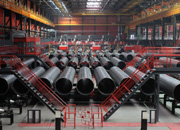 Threeway Steel is known as a professional supplier engaged in manufacturing and distributing a wide range of steel pipe, and our headquarter located the central part of China – Hunan and six associated factories throughout China.
Threeway Steel is known as a professional supplier engaged in manufacturing and distributing a wide range of steel pipe, and our headquarter located the central part of China – Hunan and six associated factories throughout China.
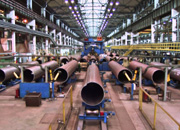 Threeway Steel is known as a professional supplier engaged in designing, manufacturing and distribution of a wide range of steel products with the headquarter located the central part of China – Hunan and six associated factories throughout China.
Threeway Steel is known as a professional supplier engaged in designing, manufacturing and distribution of a wide range of steel products with the headquarter located the central part of China – Hunan and six associated factories throughout China.
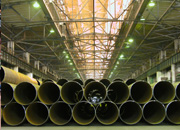 Threeway Steel is known as a professional supplier engaged in designing, manufacturing and distribution of a wide range of steel products with the headquarter located the central part of China – Hunan and six associated factories throughout China.
Threeway Steel is known as a professional supplier engaged in designing, manufacturing and distribution of a wide range of steel products with the headquarter located the central part of China – Hunan and six associated factories throughout China.
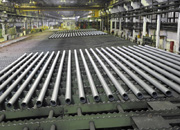 Threeway Steel is known as a professional supplier engaged in designing, manufacturing and distribution of a wide range of steel products with the headquarter located the central part of China – Hunan and six associated factories throughout China.
Threeway Steel is known as a professional supplier engaged in designing, manufacturing and distribution of a wide range of steel products with the headquarter located the central part of China – Hunan and six associated factories throughout China.
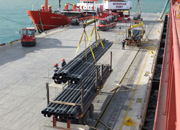 Threeway Steel is known as a professional supplier engaged in designing, manufacturing and distribution of a wide range of steel products with the headquarter located the central part of China – Hunan and six associated factories throughout China.
Threeway Steel is known as a professional supplier engaged in designing, manufacturing and distribution of a wide range of steel products with the headquarter located the central part of China – Hunan and six associated factories throughout China.

